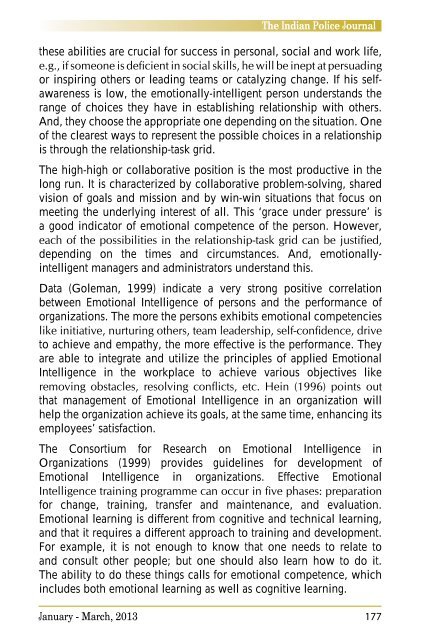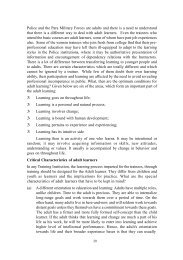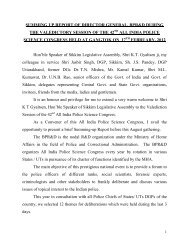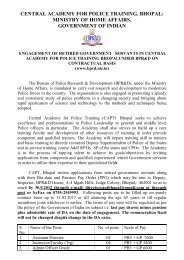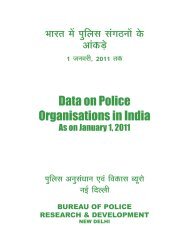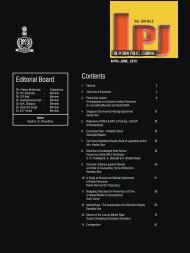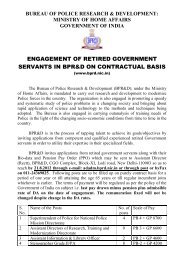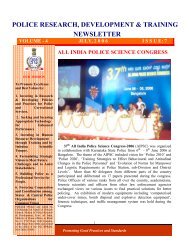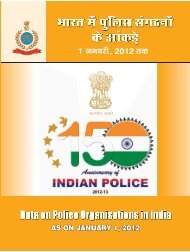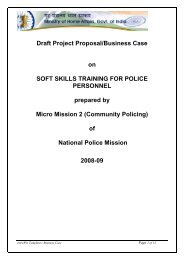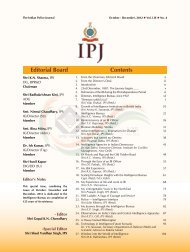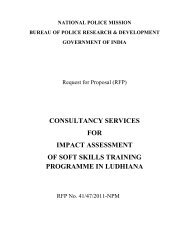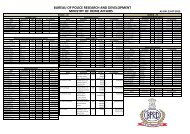by Police - Bureau of Police Research and Development
by Police - Bureau of Police Research and Development
by Police - Bureau of Police Research and Development
Create successful ePaper yourself
Turn your PDF publications into a flip-book with our unique Google optimized e-Paper software.
The Indian <strong>Police</strong> Journalthese abilities are crucial for success in personal, social <strong>and</strong> work life,or inspiring others or leading teams or catalyzing change. If his selfawarenessis low, the emotionally-intelligent person underst<strong>and</strong>s therange <strong>of</strong> choices they have in establishing relationship with others.And, they choose the appropriate one depending on the situation. One<strong>of</strong> the clearest ways to represent the possible choices in a relationshipis through the relationship-task grid.The high-high or collaborative position is the most productive in thelong run. It is characterized <strong>by</strong> collaborative problem-solving, sharedvision <strong>of</strong> goals <strong>and</strong> mission <strong>and</strong> <strong>by</strong> win-win situations that focus onmeeting the underlying interest <strong>of</strong> all. This ‘grace under pressure’ isa good indicator <strong>of</strong> emotional competence <strong>of</strong> the person. However,depending on the times <strong>and</strong> circumstances. And, emotionallyintelligentmanagers <strong>and</strong> administrators underst<strong>and</strong> this.Data (Goleman, 1999) indicate a very strong positive correlationbetween Emotional Intelligence <strong>of</strong> persons <strong>and</strong> the performance <strong>of</strong>organizations. The more the persons exhibits emotional competenciesto achieve <strong>and</strong> empathy, the more effective is the performance. Theyare able to integrate <strong>and</strong> utilize the principles <strong>of</strong> applied EmotionalIntelligence in the workplace to achieve various objectives like that management <strong>of</strong> Emotional Intelligence in an organization willhelp the organization achieve its goals, at the same time, enhancing itsemployees’ satisfaction.The Consortium for <strong>Research</strong> on Emotional Intelligence inOrganizations (1999) provides guidelines for development <strong>of</strong>Emotional Intelligence in organizations. Effective Emotionalfor change, training, transfer <strong>and</strong> maintenance, <strong>and</strong> evaluation.Emotional learning is different from cognitive <strong>and</strong> technical learning,<strong>and</strong> that it requires a different approach to training <strong>and</strong> development.For example, it is not enough to know that one needs to relate to<strong>and</strong> consult other people; but one should also learn how to do it.The ability to do these things calls for emotional competence, whichincludes both emotional learning as well as cognitive learning.January - March, 2013177


